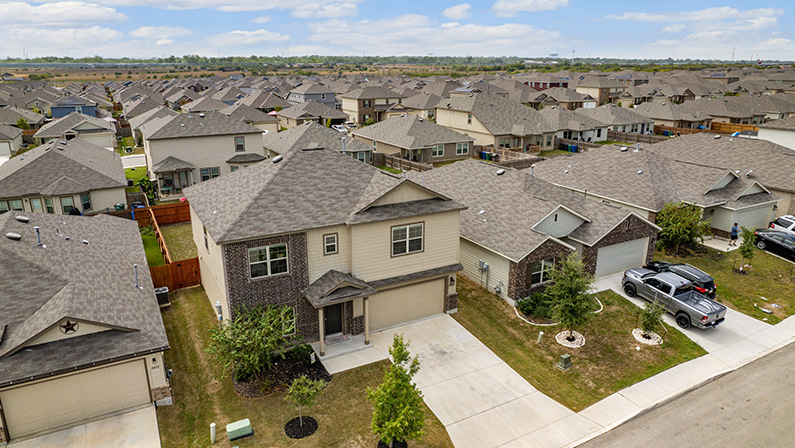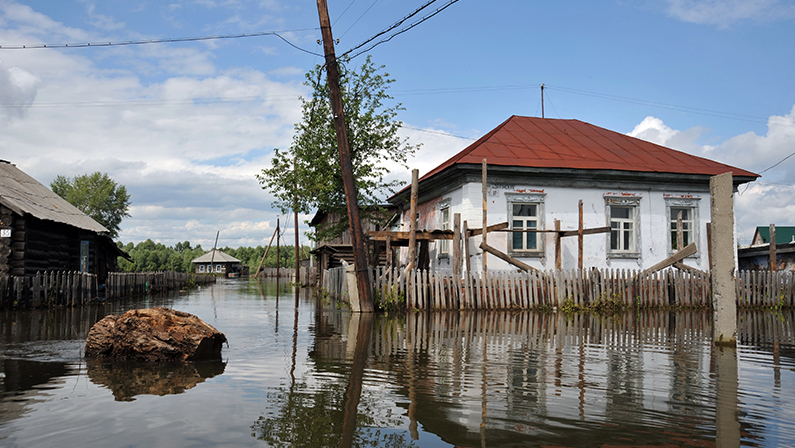Roofing Insurance: Protecting Your Shelter from the Storm
When it comes to construction and roofing, there are a lot of things that can go wrong. From working up high to dealing with unpredictable weather, these jobs come with their fair share of challenges. That's where roofing insurance, also called roofers insurance or roofing contractor insurance, comes in. It's like a safety net for roofing professionals.
This guide will help you understand what roofing insurance is all about and why it's so important, but first, let's take a look at the risks that make it necessary in the construction and roofing business.
What is Roofing Insurance?

Roofing insurance, often referred to as roofers insurance or roofing contractor insurance, is a highly specialized form of insurance coverage tailored explicitly for professionals working in the roofing industry. This type of insurance is not only beneficial but also essential for individuals and businesses involved in roofing services. It serves as a protective shield that offers financial security and peace of mind, especially in the face of unexpected and potentially costly events or mishaps.
Key Aspects of Roofing Insurance:
Financial Protection
One of the primary functions of roofing insurance is to provide financial protection. It ensures that roofing professionals have the necessary resources to cover expenses in the event of accidents, property damage, or liability claims arising from their work.
Liability Coverage
Roofing insurance typically includes liability coverage. This aspect of the policy safeguards roofing contractors and their clients by covering costs related to bodily injury or property damage that may occur during roofing projects. For instance, if a roofing worker accidentally damages a client's property while working on a project, the insurance can help cover the repair or replacement costs.
Worker Safety
Roofing is a physically demanding and hazardous job. Roofers often work at great heights and are exposed to various risks, including falls and injuries. Roofing insurance may include provisions for worker safety, covering medical expenses and lost wages in case of work-related injuries or illnesses.
Protection Against Lawsuits
In the event of legal disputes or lawsuits related to roofing work, roofing insurance can prove invaluable. It covers legal fees and court costs, ensuring that roofing professionals have the necessary legal representation to defend their interests.
Asset Protection
Roofing insurance can also extend coverage to protect the assets of roofing businesses. This includes coverage for tools, equipment, and business property, safeguarding valuable assets from theft, damage, or loss.
Importance of Roofing Insurance
Roofing insurance is important for several reasons, especially for businesses in the construction and roofing industry. If you are still on the fence about getting roofing insurance, here are reasons why it's crucial:
Liability Protection
Roofing can be a high-risk job, with workers often working at heights. Accidents can happen, and if a worker is injured on the job, roofing insurance can cover medical expenses and protect your business from potential lawsuits. This is crucial for your financial stability.
Property Damage Coverage
During roofing projects, there's a risk of damaging the property you're working on, such as the homeowner's house. Roofing insurance can cover the costs of repairing or replacing any property that's accidentally damaged during your work.
Protection from Weather Events
Roofs are exposed to the elements, making them vulnerable to weather-related damage. Whether it's hail, windstorms, or heavy rain, roofing insurance can help cover the costs of repairing or replacing roofs damaged by these events, reducing your financial burden.
Professional Reputation
Having roofing insurance can boost your credibility as a contractor. Clients often prefer to work with insured contractors because it gives them peace of mind knowing that they won't be held responsible for any unexpected mishaps or damages.
Legal Requirements
In many areas, having roofing insurance is a legal requirement to operate as a roofing contractor. Failing to have the necessary insurance can result in fines or even the suspension of your business.
Contract Requirement
Some clients, especially commercial businesses and government agencies, may require roofing contractors to have specific insurance coverage as a condition of the contract. Without insurance, you could lose out on lucrative projects.
Worker Compensation
If you have employees, roofing insurance can provide workers' compensation coverage. This ensures that your employees are financially protected in case of work-related injuries, and it helps your business comply with labor laws.
Financial Security
Unexpected expenses, whether they are due to accidents, property damage, or legal issues, can seriously strain your finances. Roofing insurance provides a financial safety net, ensuring that your business can continue to operate even in challenging circumstances.
Types of Roofing Insurance
Roofing insurance is a diverse field, with various types tailored to specific needs within the industry. Here's an exploration of the main types of roofing insurance:
General Liability Insurance
This is the cornerstone of any roofing insurance policy. It covers bodily injury and property damage that may occur during roofing work. Whether it's a slip and fall incident or accidental damage to a client's property, general liability insurance provides essential protection.
Workers' Compensation Insurance
Roofing professionals often face physical risks while working on roofs. Workers' compensation insurance steps in to provide coverage for work-related injuries or illnesses, ensuring that employees receive necessary medical care and compensation for lost wages.
Commercial Auto Insurance
For roofing contractors who operate a fleet of vehicles for business purposes, commercial auto insurance is vital. It covers damages and liabilities associated with business-owned vehicles, providing financial protection in case of accidents or damage.
Professional Liability (Errors and Omissions) Insurance
Also known as errors and omissions insurance, this coverage is crucial for protecting against claims of professional negligence or mistakes in roofing services. It addresses instances where a client alleges subpar work or errors in roofing projects.
Property Insurance
Property insurance extends coverage to protect the physical assets of roofing businesses. This includes equipment, tools, and the place of business. It safeguards these valuable assets from theft, damage, or loss.
Umbrella Insurance
Umbrella insurance offers an additional layer of liability coverage beyond the limits of other insurance policies. It acts as an extra safety net, providing increased protection against unforeseen liabilities.
Builders Risk Insurance
This insurance is essential for roofing projects under construction. It covers damage to the property and materials during the building process, safeguarding the interests of both contractors and property owners.
What Does Roofing Insurance Cover?
Roofing insurance typically covers a range of situations. Here's a breakdown of what roofing insurance typically covers:
Storm Damage

One of the primary areas of coverage under roofing insurance is protection against storm-related damage. This includes damage caused by severe weather events such as hurricanes, tornadoes, hailstorms, heavy rains, and high winds.
Roofing insurance helps cover the costs of repairing or replacing a damaged roof, ensuring that both roofing contractors and homeowners are financially shielded from the aftermath of these natural disasters.
Accidents

Roofing projects can be inherently risky due to the nature of the work, which often involves working at significant heights. Roofing insurance provides coverage for accidents that may occur on the job.
This includes injuries sustained by roofing professionals while working on roofs, as well as accidents involving third parties, such as bystanders or clients. The insurance helps cover medical expenses and potential legal liabilities arising from such accidents.
Unforeseen Events
Roofing insurance also extends coverage to unforeseen events that can lead to costly repairs. This encompasses a wide range of unexpected incidents, from structural failures due to material defects to sudden roof leaks caused by unforeseeable factors. Having roofing insurance ensures that the financial burden of addressing these unforeseen challenges is significantly mitigated.
Legal Expenses
In the unfortunate event of a legal dispute or lawsuit related to roofing work, roofing insurance steps in to provide coverage for legal expenses. This includes attorney fees, court costs, and any potential settlements or judgments. Legal protection is a crucial aspect of roofing insurance, ensuring that contractors have the resources and representation needed to navigate legal challenges effectively.
Additional Coverage
Depending on the specific policy and its terms, roofing insurance may offer additional coverage options. These could include coverage for damage to roofing equipment and tools, coverage for damages caused during the transportation of materials, and even coverage for temporary accommodations for homeowners in the event of severe roof damage that makes their homes uninhabitable.
Factors Affecting Roofing Insurance Costs
Many things can affect how much you pay for roofing insurance. Here's a straightforward look at these factors:
Business Size and Location: The size of your roofing business and where it's located can make a big difference. Bigger businesses or those in areas with more risks might pay more.
Type of Roofing Work: The kind of roofing jobs you do matters. Some types of work are riskier than others, and that can affect your costs.
Level of Risk: How risky your roofing work is plays a role. If your jobs are more likely to have accidents or damage, you might pay higher premiums.
Coverage Amounts and Deductibles: The amount of coverage you want and the deductible you choose also impact your costs. More coverage and lower deductibles often mean higher premiums.
Choice of Insurance Provider: Different insurance companies have different prices. Shopping around and comparing quotes can help you find the best deal.
Understanding these factors helps you make smart choices when it comes to roofing insurance, ensuring you get the right coverage at the right price.
Tips for Choosing the Right Roofing Insurance

Selecting the right roofing insurance policy involves careful consideration. Here are some tips to help you make the best choice:
Assessing Your Coverage Needs
Evaluate your specific needs and risks. Consider the size of your business and the types of projects you undertake.
Comparing Insurance Providers and Plans
Shop around and compare quotes from different insurance providers. Look for companies that specialize in roofing insurance.
Reviewing Policy Details
Thoroughly review the policy details, including coverage limits, deductibles, and any exclusions. Make sure you understand what is covered and what isn't.
Analyzing Costs and Potential Savings
While budget considerations are essential, don't base your decision solely on the cheapest premium. Consider your budget and the long-term savings potential. Comprehensive coverage that adequately addresses your needs should be your primary focus, even if it comes at a slightly higher initial cost.
Seeking Professional Guidance
Consult with an insurance agent or broker who specializes in roofing insurance. They can provide expert advice tailored to your unique situation.
Top Roofing Insurance Providers
When it comes to choosing the right roofing insurance provider, it's essential to consider reputable names in the industry. While the ideal choice may vary depending on your specific needs and location, certain insurance companies have gained recognition for their tailored coverage options and exceptional customer service.
One such notable player in the roofing insurance sector is Hotchkiss Insurance. Hotchkiss Insurance offers comprehensive coverage solutions designed to address the risks and challenges prevalent in the roofing industry. This includes protection against storm damage, accidents, liability claims, and various other contingencies that roofing professionals may encounter.
Protect Your Roofing Business, Protect Your Finances
Roofing insurance is an indispensable tool for roofing professionals and homeowners alike. It offers protection, peace of mind, and financial security in the face of unpredictable events. By carefully assessing your needs, comparing plans, and seeking professional guidance, you can make an informed decision to safeguard your roofing endeavors.
Not sure where to begin? Seek advice from reputable providers in the roofing insurance sector like Hotchkiss Insurance. Hotchkiss Insurance offers comprehensive coverage solutions designed to address the specific challenges faced in the roofing industry. So, as you embark on your roofing endeavors, remember: protecting your roof means safeguarding your finances, and roofing insurance is the key to achieving that security.